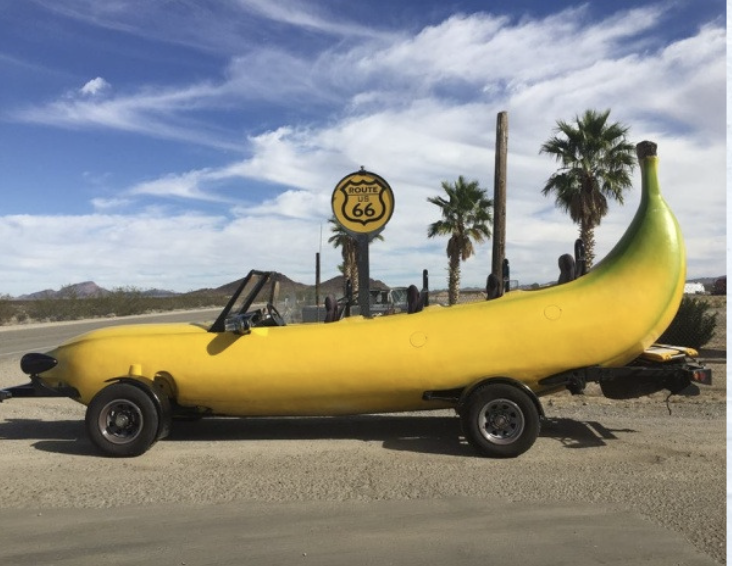Which One is More Valuable: a Banana or a BMW? The answer seems obvious if we look at it from a market value perspective. You can buy a banana for a dollar or less, but a BMW will cost you thousands of dollars. In this article, I would like to offer an alternative perspective through which one can view a single banana as more valuable than all the BMW cars in the market.

Let us start with value. What is value? How do we determine the value of anything? The Merriam-Webster dictionary gives the first three meanings of value as follows: “the monetary worth of something”, “a fair return or equivalent in goods, services, or money for something exchanged”, and “relative worth, utility, or importance”. The first definition is about the market value or exchange value while the third one is mostly a derivative of the first two. The dictionary meaning of value clearly reflects how people view the “value” of anything in modern times. Essentially, money appears to be the real measure in determining the value of anything. Then, what does monetary value mean? In other words, how does the market determine the monetary value of anything? Economics provides a clear answer to this question. It is all about scarcity. If something is relatively scarce, it becomes expensive. If something is abundant, it is very cheap. Thus, supply and demand are the true determinants of market value. Drinking water is very cheap compared to gold because water is relatively abundant while the gold supply is limited. As might be the case on some planets, if gold begins to rain from the sky, it will become cheaper than water. Likewise, compared to a BMW, a banana is cheaper because it is relatively abundant.
It is wrong to link the importance or “true worth” of something to its market value. While market capitalism puts all emphasis on the exchange value, the Marxist economy points to “labor value” and “use value” as other types of value. In Marxist ideology, the true value of commodities is determined by the labor value because without labor (human), you could not produce any product. Thus, human agency is the most important input. Therefore, it is a true source of value-added to raw materials. The Marxist economy also defines “use value” in terms of the importance of goods and services in fulfilling certain human needs and desires. In this perspective, water is more valuable than gold because it is a necessity for human survival. In the age of automation and robotization, it might be hard to defend the Marxist “labor value” theory. However, I think he got it right in his theory of “use value”.
The “use value” theory would help us argue that a banana would be more valuable than a BMW car if we have no other food but bananas to sustain our lives. Given the fact that we have many other alternative types of food, it is hard to claim that the humble banana is more valuable because it fulfills our essential needs. I suggest three other concepts of value to provide supporting arguments for banana vs BMW: existential, Divine, and gift values.

“Existential value” is the very value of something to exist versus not existing. The value of “to be or not to be”. In other words, rather than taking existence for granted, we shall reflect on the absence of existence in order to appreciate the value of existence. For instance, if we assume that the banana seed does not exist, then, the only way for us to make a banana is to arrange basic particles such as electrons and quarks in a particular way to make it from scratch. Of course, we will not take anything for granted including the existence of fundamental particles such as electrons and quarks. For now, if we are granted these particles and are left to figure out how to arrange them to make a banana, it will cost us billions of dollars (if we ever even manage to achieve our goal in making one). Economics states that the price of a product should never be less than its average cost in the long run. This means that price of a single banana will be greater than the entire market value of all BMW cars. In fact, as of now, the price of a banana is infinitely expensive because scientists do not think we can ever make a living cell (of a banana or otherwise) from scratch.
“Divine value” is another type of value we will recognize once we go deep in our reflection on the banana. This type of value requires that we see the connection between a banana and many other things such as soil, water, the atmosphere, the Sun, the moon, galaxies, and so on. It is to see that at the micro and macro level, a single banana is connected to everything to a different degree. This interconnectivity will help us view a banana as a fruit of the tree of the entire universe.
Once we see this connection, we will easily connect a banana to the Creator of the entire cosmos. That is because it takes infinite power and knowledge to create a single banana in connection with the universe. Once we come to this realization, we can decode messages embedded into a banana from its Creator. In fact, a banana will become a special letter from the Creator. It will tell us that the Creator is All-Knowing, All-Powerful, and All-Wise. He is the One who creates and sustains life through various nutritious food. He is The Most-Kind, Most-Merciful, Most-Generous, and Most-Loving. Thus, a banana is not food for our stomachs only, it is also food for our mind, heart, and other faculties. It will gain almost infinite value because we can find eternity through reading the embedded encrypted message within.
Yet, another type of value is “gift value”. As we know, we can value a gift much more than its market value because of its meaning for us. For instance, receiving a kilo of baklava from your most beloved president is a thousand times more valuable than buying the very same baklawa with your own money. That is because, in the former, you will see the love and care of your favorite president. Similarly, if we perceive a single banana as a special gift from The Creator of the entire cosmos, its value in our eyes will go up a thousandfold. The more we are convinced it is a special gift meant for us, the more we will feel honored and receive pleasure from that banana.

In short, it is very clear that a single banana could be more valuable than a BMW if we go beyond “exchange value”, and perceive its “use”, “existential”, “Divine”, and “gift” values. Most people fail to see such values because they are blinded by free-market capitalism which gives importance to “exchange value” only. In other words, as Oscar Wilde says, we will “know the price of everything, but the value of nothing”. As we embrace the principles of a free-market economy, we will begin to value everything through the prism of their exchange value, or price. In fact, we will even value people in terms of their market value. In other words, we respect people based on their wealth or income which is determined by the market value of their work. We will respect a billionaire casino owner over a great teacher without thinking about their true contributions to society.
We argue that one-dimensional value perception results in conspicuous consumption and lower subjective well-being. On the other hand, multi-dimensional value perception leads to higher subjective well-being with lower consumption. Indeed, one can feel almost infinitely rich and blessed through multi-dimensional perception even if one has very little things in possession. Perhaps, our very existence itself is sufficient for a person to be infinitely thankful since he/she will not take his/her own existence for granted. Thus, we think the real cure to conspicuous consumer culture goes through the awareness of other types of value beyond the exchange value. That will also bring a real solution to environmental, social, moral, and psychological problems which originate from materialistic aspirations and the dominant consumer culture.